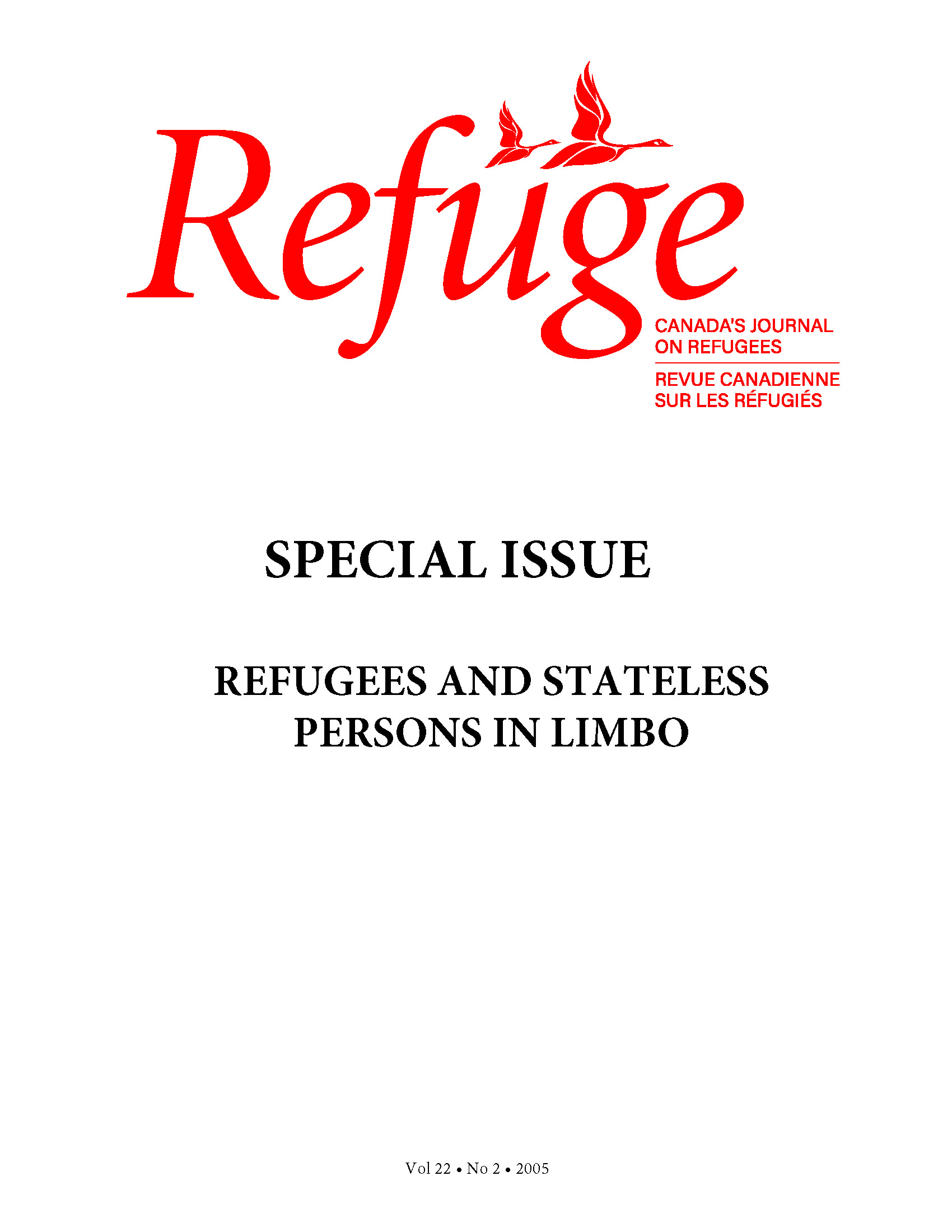In Limbo: Dependency, Insecurity, and Identity amongst Somali Refugees in Dadaab Camps
DOI:
https://doi.org/10.25071/1920-7336.21328Keywords:
Dadaab, Kenya, Somali refugees, limbo, encampment, dependency, self-worth, host stateAbstract
The Somali civil war of 1991 left thousands of refugees scattered in neighbouring countries. This article examines the situation of the 130,000 Somalis in their second decade in Dadaab camps in Kenya, with a particular focus on the role and responsibilities of the refugee regime and the host state. It is argued that these camps are characterized by deprivations of both material and physical security. Research found that refugees’ dependency on inadequate aid is due to lack of alternative livelihoods rather than “dependency syndrome.” However, participants expressed diminished “self-esteem” resulting from their prolonged encampment. Finally, the paper presents a critique of the failure to explore solutions for protracted refugee situations on the part of the international refugee regime.Metrics
Downloads
Published
How to Cite
Issue
Section
License
Copyright (c) 2005 Awa M. Abdi

This work is licensed under a Creative Commons Attribution-NonCommercial 4.0 International License.
Refuge authors retain the copyright over their work, and license it to the general public under the Creative Commons Attribution-Non Commercial License International (CC BY-NC 4.0). This license allows for non-commercial use, reproduction and adaption of the material in any medium or format, with proper attribution. For general information on Creative Commons licences, visit the Creative Commons site. For the CC BY-NC 4.0 license, review the human readable summary.







